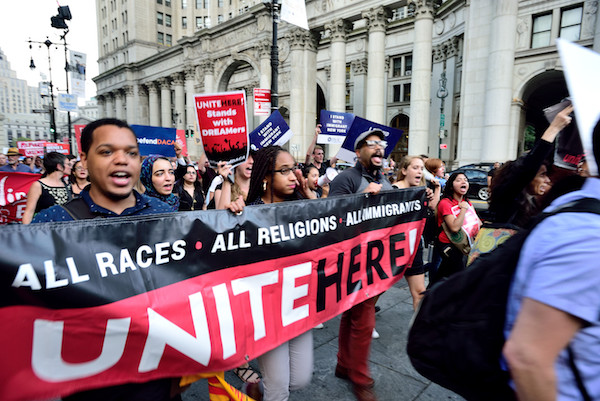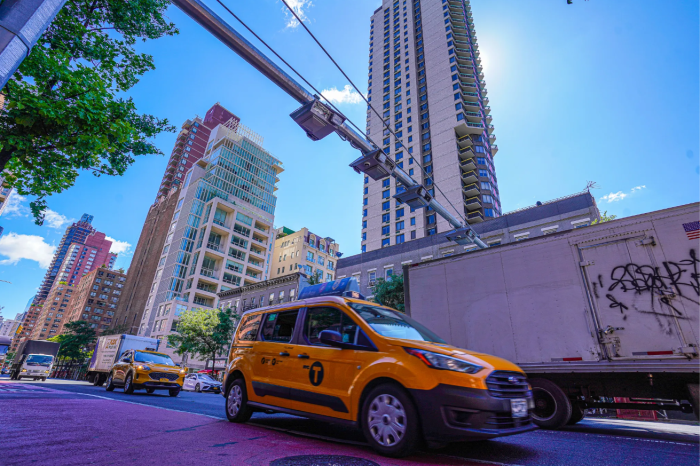By Diana R.
I am one of at least 700,000 Americans waiting for some very important news from the Supreme Court that will have far-reaching consequences for all of us. I’m talking about the Supreme Court’s decision to either defend or destroy DACA.
DACA recipients are American in every way, except on paper. Tens of thousands of healthcare workers working around the clock on the frontlines of the COVID-19 pandemic are DACA recipients; thousands of college students currently finishing their semesters behind computer screens are DACA recipients; and countless others, like me, who work at advocacy groups, non-profits, and too many other industries to name, holding the line however we best can, are also DACA recipients.
I recently graduated from college, and this is my home. It’s the only home I’ve ever known. Taken together, the sum of our stories represent the resilience that shapes America.
Why end DACA now, or for that matter at any point, when it’s clear that every single one of us – no matter our status – is essential to fight this pandemic? Why sow division among us and weaken our efforts to beat COVID-19, when we know defending the program is a common sense measure to protect our country’s health and well-being?
Like most other kids in the United States, my parents had to make tough choices to make sure we had better lives. My parents dreamt of bigger things for me, and so when I was two years old, my mom and I moved to Queens, New York from Mexico. I always knew I wasn’t born here, but there wasn’t much else different from me and my classmates except that my family didn’t go on international vacations. It hit me hard during the 2016 election when friends of mine were registering to vote and I couldn’t.
But I never let that hold me back from pursuing my dreams of doing good for my community and my neighbors. I worked hard, earned a scholarship to go to college, and interned for Assemblymember Catalina Cruz, the first former DREAMer to get elected to the New York State Assembly. I also interned for the late Senator Jose Peralta, the prime sponsor of the DREAM Act. I remain deeply inspired by these role models who showed young people like me that it’s worth chasing big dreams, no matter where you’re from or how you got here. All that matters is whether you’re a good neighbor to those around you.
It’s probably an overstatement to say a lot of us across the country are feeling the economic pressures of the COVID-19 pandemic. Right now my family is okay. But we don’t know for how much longer. My dad is now working just three days a week. At least we have two incomes. But it’s not impossible to imagine a world where I may be the only one in a family of six bringing home a paycheck. This is definitely not a reality most recent college graduates like me have had to consider, the ink still wet on our diplomas.
Adding to this stress, we aren’t eligible for federal relief through the stimulus package that recently passed because we are a mixed-status family.
Over a million people in the United States live with a DACA recipient. And while the federal stimulus package provided much-needed relief to many families, it leaves behind many like mine who are major contributors to the fiscal health of our country. According to a recent Center for American Progress analysis of American Community Survey microdata, “DACA recipients and their households pay $5.7 billion in federal taxes and $3.1 billion in state and local taxes annually. In addition to this, DACA recipients boost Social Security and Medicare through payroll taxes.”
It’s frustrating to know you could do so many things right, and give so much to your country, and it still might not count. Let’s say the supreme court rules in favor of the Trump administration in coming days, will he then use their decision as cover to terminate DACA immediately? Or when my permit expires? The anxiety of not knowing is something I wouldn’t wish upon anyone. DACA recipients are deeply woven into the fabric of our nation, and in our local communities. Imagine the damage done to our neighborhoods if we were all deported from the only place we’ve ever called home.
We’ve all seen the non-stop coverage and images of hospital scenes working beyond capacity to save lives. Among those masked faces are 27,000 skilled health professionals with DACA status who have been educated and trained here in the United States, risking their lives to help those who need them most. If DACA is destroyed, what kind of message are we sending to these heroic healers? The ones stocking our local grocery store shelves? Delivering meals? All of those keeping us safe, fed, and healthy?
I want us to remember that we can thank those who are on the frontlines, without perpetuating the ‘exceptional immigrant’ myth. Some of us are invisible. But we are still mothers, sisters, and friends. We are classmates and colleagues. We are united in our shared hope that tomorrow has to be better for all of us — especially those who were already struggling to get by before the pandemic hit. And once this is all over, we will be here along with everyone else, picking up the pieces, and rebuilding our beautiful country.
No matter what the Supreme Court decides, I am not naive enough to believe the attacks on DACA will stop. Even before the COVID-19 pandemic, racist and xenophobic attacks against immigrants were central to Trump’s agenda. Support for DACA recipients and a legislative fix for our situation has always been a popular bi-partisan issue, until this White House. Sadly, we remain pawns in the President’s hands for his border wall.
At the end of the day, faith keeps me going. I know that unraveling the threads that bind us together during a national public health crisis will destroy any hope we have of emerging victoriously from this nightmare. Now isn’t the time to turn neighbors into strangers. Choosing to fight this together is the only way forward.




































